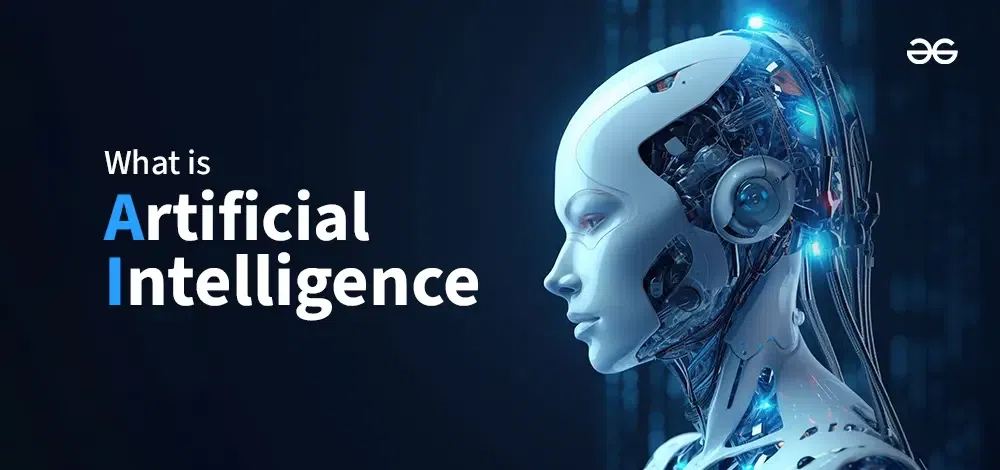Technology has changed our lives in countless ways, from the smartphones we carry in our pockets to the smart devices that surround us in our homes. But the future holds even more transformative potential, thanks to an exciting field of study known as artificial intelligence (AI). Artificial intelligence refers to the development of computer systems that can think and learn like humans, enabling them to perform tasks that typically require human intelligence. From self-driving cars to voice assistants,
AI is already reshaping the way we live and work, and its impact is only expected to grow. In this article, we will dive into the fascinating world of AI, exploring its current applications, its potential future advancements, and the ethical considerations that come along with it. So, sit back, relax, and prepare to be amazed by the future of technology with artificial intelligence.
Overview
At its core, AI encompasses various technologies and techniques that enable machines to mimic human intelligence. Machine learning, for instance, involves training algorithms with massive amounts of data to recognize patterns and make predictions. Natural language processing allows machines to understand and interpret human language, enabling chatbots and virtual assistants to communicate with us seamlessly.
The impact of AI is far-reaching, with applications in various industries such as healthcare, finance, and transportation. One of the significant benefits of AI is its ability to automate repetitive tasks, which in turn improves productivity and efficiency. For example, in healthcare, AI-powered systems can analyze medical records and assist in diagnosing diseases more accurately and quickly.
While the advancements in AI bring exciting possibilities, there are also ethical and societal concerns. The use of AI raises questions about privacy, security, and job displacement. It is crucial for governments and organizations to address these concerns and establish regulations to ensure responsible and ethical AI development and deployment.
In conclusion, artificial intelligence is revolutionizing the way we live and work. From self-driving cars to personalized healthcare, AI has the potential to shape our future significantly. By understanding its capabilities and limitations, we can harness the power of AI to create a better world while addressing the ethical and societal implications that come with it.
Artificial Intelligence on Tech Innovations
Artificial intelligence (AI) has been a driving force behind numerous technological innovations in recent years. Its ability to simulate human intelligence and perform tasks that typically require human cognition has revolutionized various industries, from healthcare to transportation. AI’s impact is particularly evident in the realm of tech innovations, where it has propelled advancements that were once only dreamt of.
One area where AI has excelled is in voice recognition technology. Virtual assistants like Siri, Alexa, and Google Assistant have become commonplace, allowing users to interact with their devices through natural language. AI algorithms have been fine-tuned to understand speech patterns, accents, and even interpret complex commands, making voice recognition an invaluable tool in our daily lives.
Another exciting development is the integration of AI in autonomous vehicles. Self-driving cars rely heavily on advanced AI algorithms to analyze real-time sensory data and make split-second decisions. Machine learning enables vehicles to recognize and respond to road conditions, traffic signs, and potential hazards. As these technologies continue to evolve, we can expect safer and more efficient transportation systems.
AI also plays a vital role in cybersecurity, where it helps identify and prevent potential cyber threats. With the increasing number of data breaches and cyber attacks, AI algorithms are being utilized to analyze vast amounts of data and detect patterns that might indicate malicious activity. The ability to identify and respond to these threats in real-time has become crucial for organizations.
Artificial intelligence has revolutionized and continues to shape the world of tech innovations. From voice recognition technology to autonomous vehicles and cybersecurity, AI has become a powerful tool that enhances our daily lives in numerous ways. As this technology continues to progress, we can only imagine the remarkable advancements AI will bring in the future.
Advancements in Artificial Intelligence Technology
Artificial intelligence (AI) technology has advanced by leaps and bounds in recent years, propelling us into a future that was once only imaginable in science fiction. This revolutionary technology has rapidly transformed various industries, revolutionizing the way we live and work. With AI, machines are now capable of understanding, reasoning, and even learning from large amounts of data, enabling them to perform tasks that were once exclusively reserved for humans.
One of the most significant advancements in AI technology is deep learning, a subfield of machine learning that mimics the human brain’s neural networks. Deep learning algorithms can process vast amounts of data and extract patterns and insights from them, enabling machines to make informed decisions and predictions. This has opened up a wide range of possibilities in diverse fields such as healthcare, finance, and transportation. For instance, AI-powered systems can now diagnose diseases, analyze financial markets, and even drive autonomous vehicles with increasing accuracy and efficiency.
Another area that has seen remarkable progress in AI technology is natural language processing (NLP). NLP focuses on enabling machines to understand and process human language, bridging the gap between humans and machines. With advancements in NLP, virtual assistants like Siri and Alexa have become indispensable parts of our daily lives, allowing us to interact with technology effortlessly. These virtual assistants can now comprehend voice commands, answer questions, and even engage in context-driven conversations, thanks to AI.
Moreover, AI has greatly influenced the field of automation. With the ability to perform repetitive and mundane tasks with precision and efficiency, AI-powered robots and machines have revolutionized industries such as manufacturing and logistics. These machines collaborate with humans, improving productivity and reducing errors. From assembly lines to warehouses, AI technology has transformed various aspects of production and distribution.
Looking ahead, the advancements in AI technology show no signs of slowing down. With ongoing research and development, we can expect AI systems to become even smarter, empowering us to tackle complex problems and elevate our society to new heights. However, we must also address the ethical concerns surrounding AI to ensure that these advancements benefit humanity while upholding moral values. Artificial intelligence is undoubtedly reshaping our world, and we must embrace it responsibly to shape a better future.






